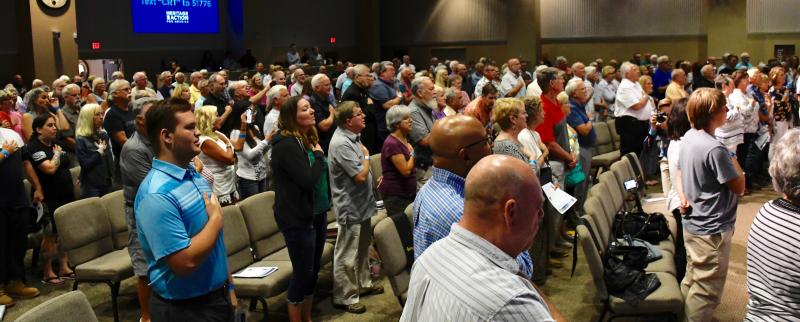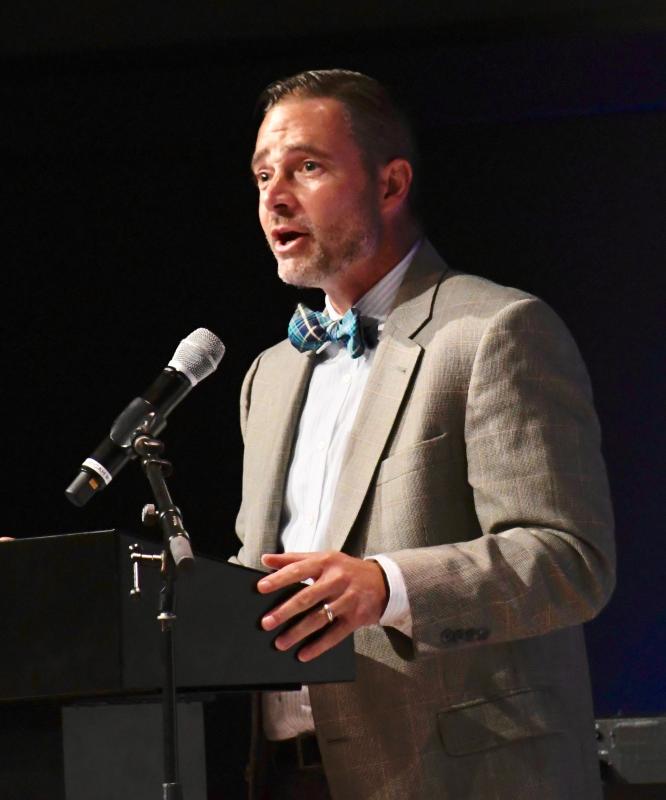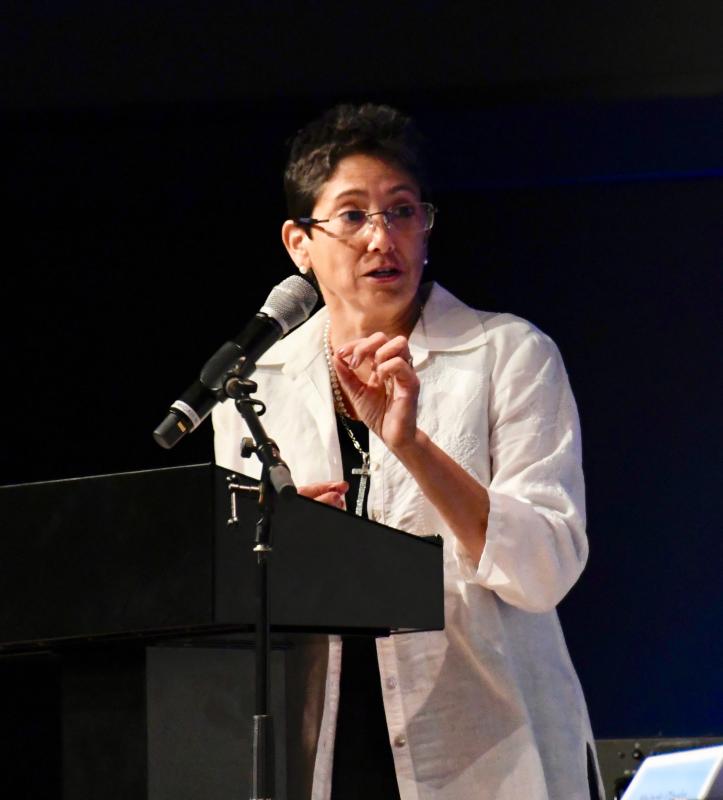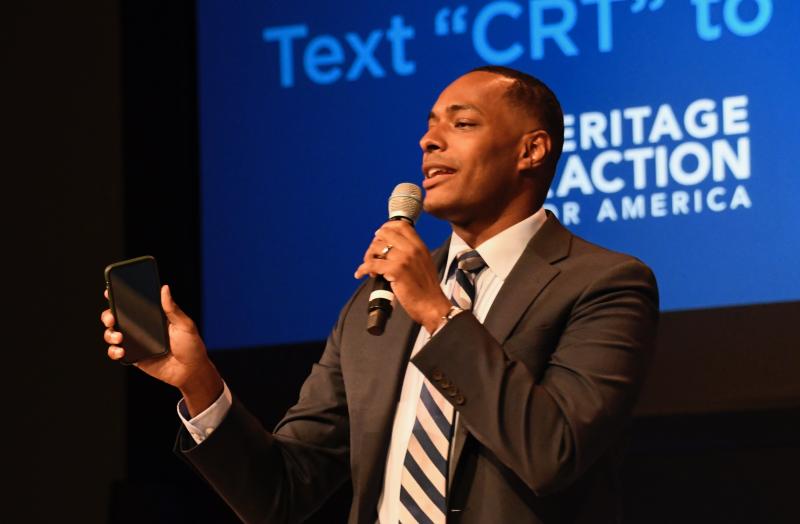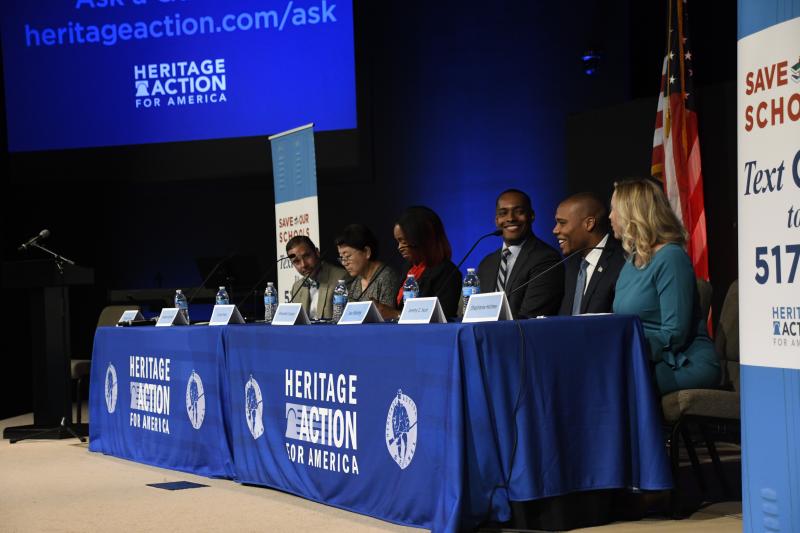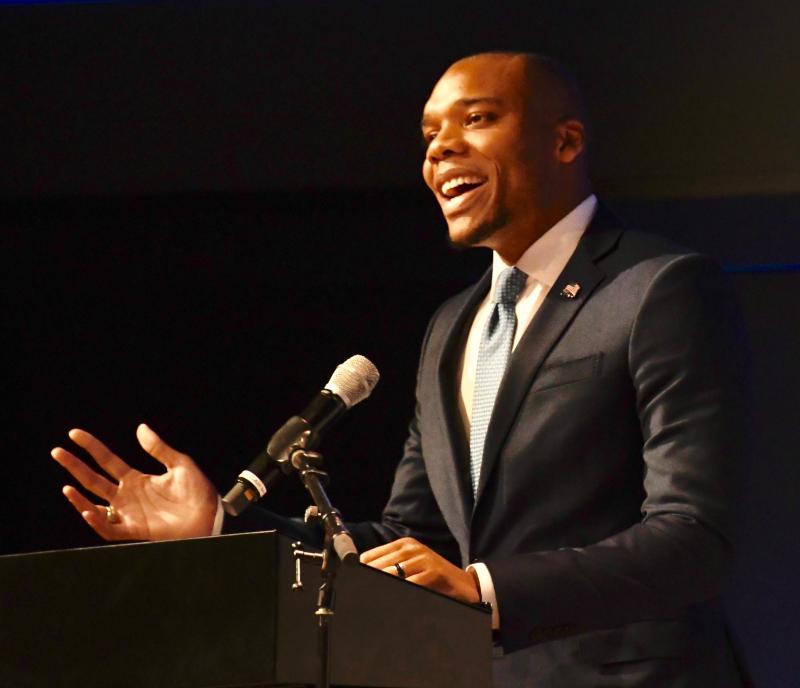Heritage Action pushes back against critical race theory
Critical Race Theory has become a hot-button topic all over the United States, pitting conservatives against CRT proponents.
And education has become the new battleground as states across the nation are seeking legislation to ban CRT principles from school curriculum and teachings.
Heritage Action, a conservative policy advocacy organization, brought the issue closer to home with a panel of scholars, parents and professionals speaking out against CRT July 29 at Crossroad Community Church near Georgetown. A crowd of nearly 400 people attended.
Founded in 2010, Heritage Action is an affiliate of The Heritage Foundation, a conservative think tank.
What is critical race theory?
CRT organizer and law professor Kimberlé Crenshaw offers the following definition: “It critiques how the social construction of race and institutionalized racism perpetuate a racial caste system that relegates people of color to the bottom tiers. CRT also recognizes that race intersects with other identities, including sexuality, gender identity and others. CRT recognizes that racism is not a bygone relic of the past. Instead, it acknowledges that the legacy of slavery, segregation, and the imposition of second-class citizenship on Black Americans and other people of color continues to permeate the social fabric of this nation.”
According to Heritage Action, CRT holds to the ideas that:
There is no absolute truth – only competing narratives. It sees lived experiences as mattering more than facts.
Individuals are either oppressors or victims. You are predetermined by immutable characteristics such as race to fall into either category. Culture is defined by groups exercising power over each other. America is systemically racist and must be dismantled. It sees America as having been founded on the system of capitalism, which is racist, and therefore must be disrupted.
“When followed to its logical conclusion, CRT is destructive and rejects the fundamental ideas on which our constitutional republic is based. Applying the philosophy would violate a multitude of American civil rights laws by treating people differently according to race,” according to Heritage Action.
Distrust in all pillars of society
Jonathan Butcher, a Will Skillman Fellow in Education at the Heritage Foundation, traced the roots of the movement. “It's a Marxist idea that American law is systemically oppressive. Proponents are skeptical of the American legal system and have a disbelief in the law,” he said. “Their aim is to sow distrust in all pillars of American society with the premise that racism is permanent and the oppressed will always be in a state of resistance. There is no hope, only resistance.”
He said the movement, which began in American law universities, has been around for more than 40 years, but it really came to the forefront in 2020 during the aftermath of the George Floyd protests.
“CRT views everything in light of race. It's race that is the most important element of one's identity,” Butcher said.
Proponents: Racial healing
Proponents say CRT will bring racial healing and end division among the races. One of the leading proponents, race scholar Angel Jones, says CRT is an effective lens to better understand disparities in housing, education and healthcare.
“CRT is not the enemy, racism is. We can use CRT to challenge systemic oppression. Racism endures because it's embedded into the fabric of society,” Jones is quoted as saying.
CRT and education
Butcher said CRT doctrines are surfacing in schools across the nation as they gain more support from teachers' unions, and are used more and more in teacher training programs.
Butcher said diversity, equality and inclusion can be positive actions. “But in CRT they are used to create equal outcomes for everyone artificially,” he said.
He said it's important to teach about slavery and the Jim Crow era, but it's equally important to stress the importance and strides made due to the Civil Rights Act. “We understand racism is still with us. We condemn it, and we agree there is no place for it any longer,” Butcher said.
“CRT is abusive and not based on love or friendship,” said parent Shawntel Cooper, who founded Fight for Schools in Loudoun County, Va.
It was Cooper who mobilized parents in her area to question CRT teachings in their schools when they discovered how the school board had embraced and was advocating for CRT in the district's curriculum.
“CRT seeks to tear children away from their parents. We have to fight for our children. All we want is the teaching of normal academics. We have to educate our children to think for themselves and not what societal trends tell them to do,” Cooper said. “I'm just a mother. God led me here to advocate for the innocent children.”
Cooper and several other panelists stressed that it's more important than ever for parents to take an active role in their children's education. She said parents can seek out curriculum on schools’ websites and look for phrases such as cultural responsible learning and socio-emotional learning as clues to CRT material.
Butcher said it's imperative to communicate with children about CRT. “Help them prepare now to understand the theory, because it will come in college and in the workplace when they are on their own,” he said.
“Communicate with your children's teachers, board members and the administration. Do the research yourself. It's up to us,” Cooper added.
Moderator Melody Himel Clarke, senior Heritage Action regional coordinator, said the organization has information for parents, including a toolkit explaining how to make Freedom of Information Act requests to schools. Go to heritageaction.com.
CRT in the military
Jeremy Hunt, a five-year Army veteran and West Point graduate, said CRT training is in every branch of the military, and especially in the military academies.
He said CRT is not being taught as much from a historical perspective, but rather as a theory to transform minds. “How to be anti-racist is being endorsed and embraced,” he said.
Hunt said thanks to whistleblower legislation, members of the military can now make anonymous complaints. “We can also give them a voice. We have to protect them against what the Biden administration is doing to our young people,” Hunt said.
“At times, its looks like the left is winning. But we will end because we stand on truth. No theory or ideology can stop it. The light is going to drive out the darkness,” Hunt said.
Heritage Action is actively lobbying for two pieces of legislation: Combatting Racist Teaching in Schools Act (HR 3163) and Combatting Racist Training in the Military Act (SB 1968/HR 3134).
For more information, go to heritageaction.com/toolkit/rejectcrt.
For more information concerning CRT in schools, go to brookings.edu/blog/fixgov/2021/07/02/why-are-states-banning-critical-race-theory.
